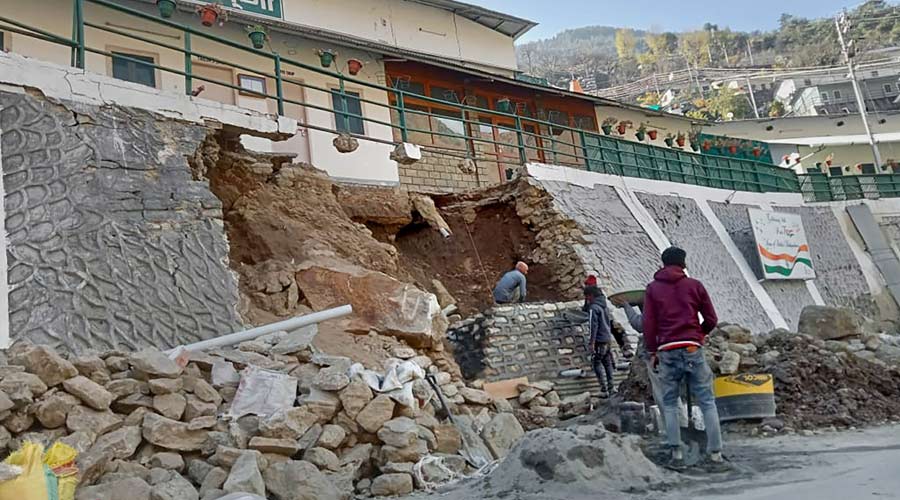Three things — a functional model of governance, a functional economy and a functional ecology — are needed for a functional civilisation, says the American ecologist, George Woodwell. In the first two areas, humans have room for manipulation and political machinations. But there is no room for such manoeuvres when it comes to ecology. You either follow the rules of nature or perish. The time needed to destroy an ecosystem, Woodwell found in his epochal study long ago, is far less than that necessary to rejuvenate it.
India, indeed the world, stands on the cusp of ecological calamity that would show up suddenly, unannounced, in the form of a million mutinies. We would, as some recent examples show, end up spending far more on fixing our ecology than what we earned in revenues by destroying it.
The Joshimath crisis is the latest symptom that begs for conscientious attention to be paid to the main disease — a mad rush for development at an irreparable and irreversible cost to our ecology. The new year came with a bang. The town cracked, throwing its residents into panic. Going by all available records, it was in 1976 that Joshimath first reported subsidence — we did not heed that warning. Many experts have been warning that the continuation of construction in the ecologically fragile zone of Joshimath and the surrounding region would lead to subsidence. Untrammelled development continued anyway. It will take years for locals to rebuild their lives. They are paying the price for someone else’s madness.
For over 40 years, nobody heeded the warnings of ecologists. The sinking town is a consequence of unabated destruction of the ‘geologically unstable’ region’s delicate ecology. We have basically been cutting the branch of a tree on which we are sitting. The fall was imminent. Voices of sanity, many scientific studies and other calls to back off fell on deaf ears — there was a fleeting hurry to make money from big projects, never mind the ecological hazards.
Joshimath is the warning: hundreds of ecological zones in India are under attack owing to the hubris of a politician-capitalist-bureaucracy nexus — they are felling forests, ruining rivers, wrecking the hills, drilling the deserts, laughing at and mocking voices of experts, who are increasingly being marginalised. This writer has repeatedly written about how conservation and infrastructural growth are being juxtaposed to frustrate local communities and bulldoze their forest-land-waterhill-desert ecologies with impunity
Look at our forest landscapes: they are fragmented owing to mindless infrastructure projects, their ecosystems trampled by unbridled development. The Western Ghats — among the most ecologically sensitive and important ecosystems — are in a mess because, over the past few decades, development has taken precedence in decision-making. Every single scientific report urging remedial measures or pushback to projects has been thrown into the dustbin. The footsteps of the Himalayas are being drilled to build large tunnels, showing no mercy to the ecosystems that bind them together. The Indian scene is also more precarious because society is largely against science. We marvel at ‘un-science’ in the name of tradition, faith, and our utopian, glorious past.
Joshimath may not seem directly connected with what happened in Nagpur over the past week at the 108th Indian Science Congress. But therein hangs the shape of our future. On full display there was the shameless subjugation of science by religious bigots of the Right. That one of the event organisers insisted on drawing a rangoli as a means of keeping bad omens at bay came as no surprise. What will be surprising is if we come out of this insanity unscathed.











